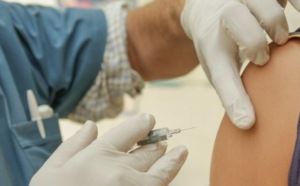News
Fourth jab rollout hopes increase following confirmation of vaccination number four for arthritis patients
This article is more than 3 years old.
Aarhus University Hospital provides extra protection to 75 recipients of Rituximab, an immunosuppressive drug that inhibits the body’s capability to produce antibodies

Could jab number four be on the way? (photo: Pixabay)
The corona infection and death rates are again rising among old people in Denmark – most particularly at care homes.
And the news that the booster loses most of its efficacy after three months has been a further worry to the country’s over-70s, who have since the start of the pandemic been the most vulnerable age group, accounting for 90 percent of all fatalities.
However, there was good news yesterday that suggests a fourth injection could soon be rolled out.
Approximately 75 arthritis patients at Aarhus University Hospital have received their fourth jab.
They are specifically recipients of the immunosuppressive drug Rituximab, which inhibits the body’s capability to produce antibodies.
Risk of depression too
“They simply form fewer antibodies against corona, and among some we cannot measure any antibodies at all. It is this particular group that we have assessed are more prone to getting a COVID-19 infection,” explained Dr Ellen-Margrethe Hauge to DR.
“We have selected them to receive not just a third, but also the fourth vaccination jab.”
Mette Bryde Lind, the head of the country’s arthritis association, underscored to DR that sufferers of the disease are of particular concern – and not just due to the risk of them catching COVID-19, but also of developing depression.
“They are of an age when you would normally live an active life with other people, but they cannot follow those impulses because they need to protect themselves from being infected,” she explained.
“This means that some are at risk of developing depression or feeling so alone that they can hardly stand it.”










































